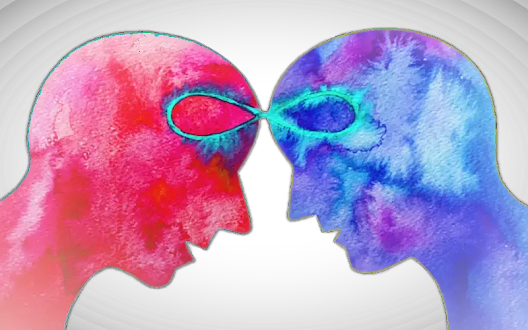Introduction
The quote, "I hope you find someone who speaks your soul language so that you don't have to spend your whole life translating your soul," encapsulates the profound human yearning for a deep, unspoken connection with another person. At its core, this quote speaks to the philosophical and psychological complexities of human relationships, highlighting the innate human desire for understanding and the quest for a shared soul language.
Philosophical Perspective
From a philosophical standpoint, this quote delves into the fundamental existential questions of human existence and connection. Philosophers such as Martin Buber have explored the concept of "I-Thou" relationships, emphasizing the significance of engaging with others on a deeply authentic level. In such relationships, individuals are not mere objects, but unique souls with their own inner worlds.
The hope expressed in the quote is that by finding someone who speaks your soul language, you can transcend the limitations of superficial interactions and engage in meaningful "I-Thou" relationships. In these relationships, there is no need for translation because both individuals can fully understand and resonate with each other's inner experiences. Imagine two individuals who have a deep connection where they can openly discuss their fears, dreams, and vulnerabilities without fear of judgment. In this relationship, they don't need to translate their feelings or thoughts because they inherently understand each other's soul language
Existentialist philosophers like Jean-Paul Sartre also emphasize the idea of "authenticity" in relationships. To live authentically is to be true to oneself, and finding someone who speaks your soul language facilitates this authenticity. It allows individuals to be fully themselves, without the need for masks or pretense, as they connect with someone who truly understands and accepts them. Consider a person who has always felt pressured to conform to societal norms and expectations. When they meet someone who fully accepts them for who they are, they can finally shed their facade and live authentically, without pretense or translation.
Psychological Perspective
From a psychological perspective, this quote touches upon the concept of psychological resonance and emotional attunement. Psychologist Carl Rogers, known for his person-centered therapy, emphasized the importance of empathy and congruence in therapy relationships. When a therapist "speaks the client's soul language," they create a safe and empathetic space where clients can explore their inner thoughts and feelings without judgment.
In personal relationships, such as friendships or romantic partnerships, finding someone who speaks your soul language means encountering a person who can attune to your emotional needs. This attunement fosters a sense of emotional security, allowing individuals to be vulnerable and authentic with one another.
Attachment theory, developed by John Bowlby and Mary Ainsworth, also sheds light on the importance of finding someone who understands your soul language. Secure attachment bonds are formed when caregivers consistently respond to an infant's emotional cues. Similarly, in adult relationships, individuals seek partners who can provide emotional responsiveness and support. When this connection is established, individuals do not need to translate their emotional needs but can experience a sense of security and comfort.
Conclusion
The quote, "I hope you find someone who speaks your soul language so that you don't have to spend your whole life translating your soul," resonates with the profound human desire for genuine connection and understanding. Philosophically, it aligns with the existentialist pursuit of authenticity in relationships, emphasizing the importance of deep, meaningful connections. Psychologically, it echoes the significance of empathy, emotional attunement, and secure attachments in fostering such connections.
The quote encapsulates the universal yearning for deep, authentic connections. It refers to individuals who possess qualities like empathy, authenticity, and exceptional communication skills. These individuals create profound bonds where emotions and thoughts flow effortlessly, eliminating the need for constant translation of inner experiences. They are empathetic, non-judgmental, and patient, allowing others to be themselves without fear. Whether in romantic partnerships, friendships, or therapeutic relationships, finding someone who speaks your soul language is about fostering genuine, meaningful connections where understanding transcends words, nurturing the essence of the soul.




0 Comments:
Post a Comment